 Petzlover
Petzlover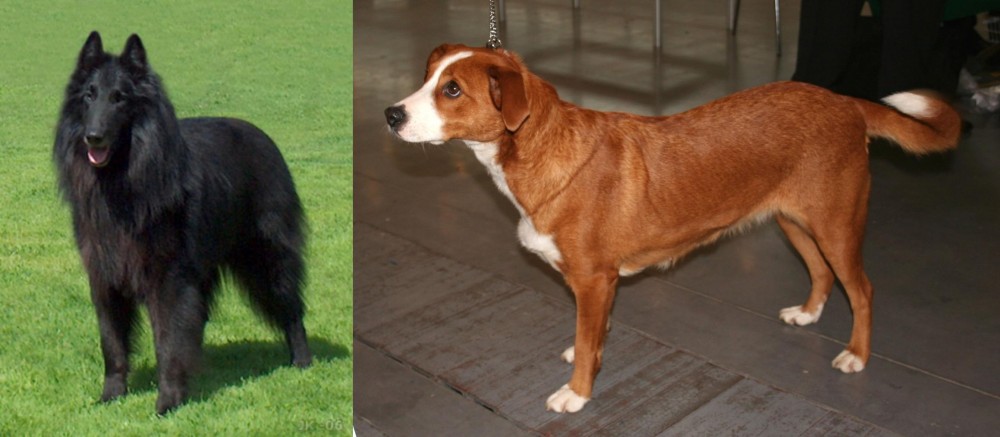 Belgian Shepherd Dog (Groenendael) is originated from Belgium but Osterreichischer Kurzhaariger Pinscher is originated from Austria. Belgian Shepherd Dog (Groenendael) may grow 16 cm / 7 inches higher than Osterreichischer Kurzhaariger Pinscher. Belgian Shepherd Dog (Groenendael) may weigh 10 kg / 23 pounds more than Osterreichischer Kurzhaariger Pinscher. Both Belgian Shepherd Dog (Groenendael) and Osterreichischer Kurzhaariger Pinscher has same life span. Belgian Shepherd Dog (Groenendael) may have more litter size than Osterreichischer Kurzhaariger Pinscher. Belgian Shepherd Dog (Groenendael) requires High Maintenance. But Osterreichischer Kurzhaariger Pinscher requires Moderate Maintenance
Belgian Shepherd Dog (Groenendael) is originated from Belgium but Osterreichischer Kurzhaariger Pinscher is originated from Austria. Belgian Shepherd Dog (Groenendael) may grow 16 cm / 7 inches higher than Osterreichischer Kurzhaariger Pinscher. Belgian Shepherd Dog (Groenendael) may weigh 10 kg / 23 pounds more than Osterreichischer Kurzhaariger Pinscher. Both Belgian Shepherd Dog (Groenendael) and Osterreichischer Kurzhaariger Pinscher has same life span. Belgian Shepherd Dog (Groenendael) may have more litter size than Osterreichischer Kurzhaariger Pinscher. Belgian Shepherd Dog (Groenendael) requires High Maintenance. But Osterreichischer Kurzhaariger Pinscher requires Moderate Maintenance
 Looking much like a pitch black German Shepherd dog, the Belgian Shepherd is a beautiful looking dog. Their roots go back to the 1800s to Groenendael, Belgium. This is where they were bred by a certain Nicolas Rose in 1910. The Groenendael is one of four different Belgian Sheepdog varieties but the Groenendael is sometimes treated as a distinct breed.
Looking much like a pitch black German Shepherd dog, the Belgian Shepherd is a beautiful looking dog. Their roots go back to the 1800s to Groenendael, Belgium. This is where they were bred by a certain Nicolas Rose in 1910. The Groenendael is one of four different Belgian Sheepdog varieties but the Groenendael is sometimes treated as a distinct breed.
They have always been used for their intelligence, serving for instance in the police force and being message carriers in war situations. Originally, Belgian Shepherds were used to herd livestock. It was in 1911 that the Groenendael was registered in the United States, and not much later the first Belgian Sheepdog Club of America formed. The breed was recognized by the American Kennel Club (AKC) in 1912.
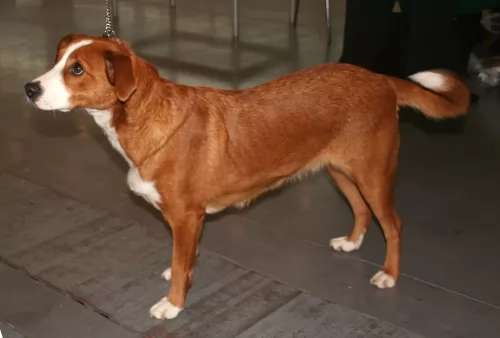 Hailing from Austria, the Osterreichischer Kurzhaariger Pinscher, better known as the Austrian Short-Haired Pinscher has always been depicted on paintings from the Baroque period.
Hailing from Austria, the Osterreichischer Kurzhaariger Pinscher, better known as the Austrian Short-Haired Pinscher has always been depicted on paintings from the Baroque period.
The dog is a terrier-type canine and has always been used as a watchdog but he was also used to hunt because of the terrier qualities he possesses.
This dog has always been used for working on farms. Breeding of this dog started in 1921 and the dog was recognized by the United Kennel Club in 2006.
 With his alert, bright brown eyes, the Groenendael, referred to often as the Belgian Sheepdog, has erect ears with a long, feathered tail. The straight, strong legs are also feathered. He is well proportioned, athletic and strong. He has a dense double coat, and this working dog’s coat is black, but you sometimes find some small white markings around his paws and muzzle. The size of the Groenendael is roughly 60-66cm at the withers with the females sometimes being slightly smaller. The weight of the dog is roughly 25–30 kilograms.
With his alert, bright brown eyes, the Groenendael, referred to often as the Belgian Sheepdog, has erect ears with a long, feathered tail. The straight, strong legs are also feathered. He is well proportioned, athletic and strong. He has a dense double coat, and this working dog’s coat is black, but you sometimes find some small white markings around his paws and muzzle. The size of the Groenendael is roughly 60-66cm at the withers with the females sometimes being slightly smaller. The weight of the dog is roughly 25–30 kilograms.
The Groenendael is an active, intelligent breed and training and socializing will be necessary to ensure he knows how to behave around his human family. He is a big, social dog and won’t do well when left alone day after day in the back yard. In fact he may even show signs of separation anxiety if you leave him indefinitely. He makes for an excellent family dog, just loving their companionship and he becomes very protective of them.
He is used to making use of his intelligence and therefore he will need mental stimulation as opposed to lying around all day. He gets on well with adults, children and other pets, but he needs to grow up with children and not be put among children when he is already an adult. He is loyal and loving to his human family, forming a deep bond, especially with just one member of the family.
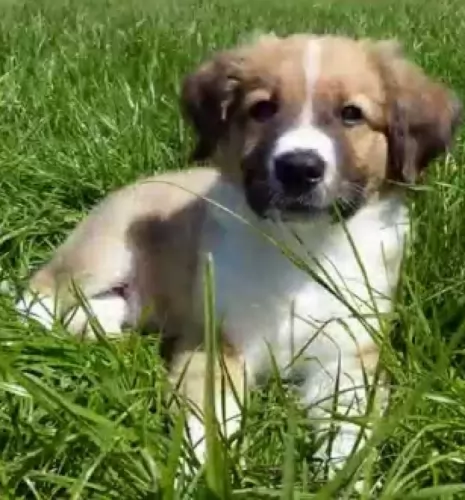 As a medium sized dog, both males and females stand at between 42 and 50cm in height and the dog weighs roughly between 14 and 20kg.
As a medium sized dog, both males and females stand at between 42 and 50cm in height and the dog weighs roughly between 14 and 20kg.
The coat is shortish, dense and smooth and is essentially black and tan with some white, fawn or brindle. The ears of the dog are fairly short and they look as though they wanted to be erect but then decided to be floppy. The nose is black and the eyes dark brown.
The tail is usually docked but when it is left long, it curls over the back. If you want your dog to be bred you can expect between 4 – 6 puppies.
These are playful dogs, getting on well with their human families and wanting to get involved in their activities. They are suspicious of strangers. They are good with kids, making them a good playmate, but they don’t like small children being allowed to climb over them.
They are able to get along well with any other pets in the house. It would be to your benefit to have the dog trained and socialized as he becomes obedient and good around people in social settings. He is an intelligent dog and will find training easy.
They also take their role as guardian and protector seriously.Because he was bred to be a farm dog, he wouldn’t e able to adapt to life on a tiny property in the city.
 Your Belgian Shepherd is an intelligent, active, loyal companion for you. He is highly intelligent too, and will need the right owner who can meet his energetic needs. He therefore wouldn’t do well with in a small place where the owners are couch potatoes. He is a working dog and will require being kept busy.
Your Belgian Shepherd is an intelligent, active, loyal companion for you. He is highly intelligent too, and will need the right owner who can meet his energetic needs. He therefore wouldn’t do well with in a small place where the owners are couch potatoes. He is a working dog and will require being kept busy.
Provide him with good food, look after that thick, lustrous coat of his, provide him with a warm, dry place to sleep and plenty of exercise, love and attention and he will turn out to be the wonderful pet that makes him such a popular breed.
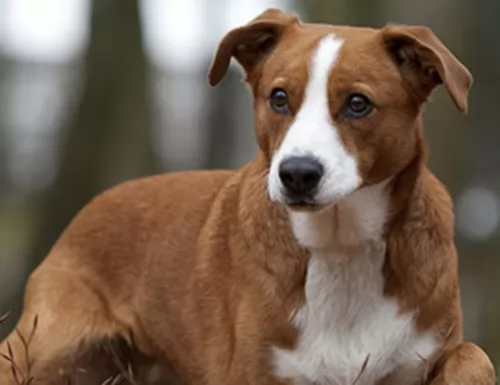 Have your Osterreichischer Kurzhaariger Pinscher trained and socialized if you want him to be amicable and obedient around you and your visitors.
Have your Osterreichischer Kurzhaariger Pinscher trained and socialized if you want him to be amicable and obedient around you and your visitors.
He does well with a human family who are firm, kind and patient with him. He loves to be kept busy with both mental and physical exercise, thriving on challenging activities, and he will become frustrated if he is left day after day just to lie around.
Take him with you on walks, buy him nice chewy, stimulating toys, throw a ball or frisbee with him and include him in your activities.
This is a dog more suited to life in the countryside as opposed to life in the city. Care well for this splendid family pet and you’ll quickly begin to see why dogs like him are known as man’s best friend.
 The Belgian Groenendael is a healthy, strong breed with no major health problems and with an average lifespan of 12-14 years.
The Belgian Groenendael is a healthy, strong breed with no major health problems and with an average lifespan of 12-14 years.
As with every dog breed, there will be some health issues to be aware of. Skin allergies, epilepsy, eye problems and hip- and joint dysplasia are some areas to look out for
Dental disease for instance, is a common problem with pets, and your Belgian Shepherd can have serious problems with their teeth. Tartar build-up on the teeth ca take you down a trail of infections and gum disease. If you don’t want to make use of a special canine toothbrush and toothpaste, your vet will do it for you.
Your Groenendael will also be susceptible to ticks, fleas and bacterial and viral infections. As a puppy of 6 – 8 weeks, vaccinations for parvo, rabies, and distemper will be necessary. You’ll also need to be generally watching your pet’s health and to get him to the vet when he shows signs of being run-down and ill.
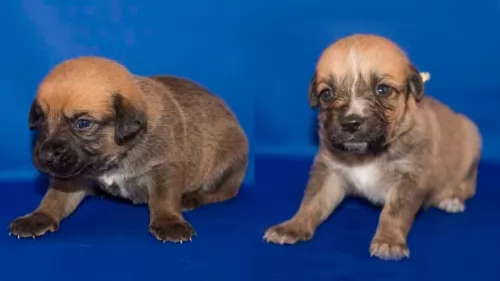 The Austrian Short-haired Pinscher is a robust kind of dog that isn’t going to have you rushing to the vet very often. True, he does have some hereditary health issues but it is highly unlikely that you will find these health issues in your pet.
The Austrian Short-haired Pinscher is a robust kind of dog that isn’t going to have you rushing to the vet very often. True, he does have some hereditary health issues but it is highly unlikely that you will find these health issues in your pet.
Nonetheless it pays to know about one of the more serious conditions -
This is a heart disease that is present from birth and could have been passed down from the parent dog to the puppy. A congenital heart defect occurs as a malformation of any valve, with the most common congenital heart diseases in dogs being patent ductus arteriosus, pulmonic stenosis as well as subaortic stenosis, all potentially inherited defects.
Sometimes a dog can live a fairly normal life with this disease but other times there are complications which can lead to congestive heart failure and atrial fibrillation, causing symptoms such as difficulty with breathing, cough and weakness. Your dog will need to get to the vet to discuss treatment options.
 The Groenendael has a double coat and because it is also fairly long, his black coat may well be high maintenance and brushing every 2nd day will be necessary to keep the coat unmatted and to also get rid of those loose hairs. In fact, heavy shedding is part of this breed’s life and while heavy shedding happens twice a year, light shedding continues throughout the year. Sometimes is may be necessary to send him to a dog grooming parlour to snip his hair and to wash it.
The Groenendael has a double coat and because it is also fairly long, his black coat may well be high maintenance and brushing every 2nd day will be necessary to keep the coat unmatted and to also get rid of those loose hairs. In fact, heavy shedding is part of this breed’s life and while heavy shedding happens twice a year, light shedding continues throughout the year. Sometimes is may be necessary to send him to a dog grooming parlour to snip his hair and to wash it.
A healthy, quality diet it absolutely imperative. Speak to your vet about the best kind of wet- or dry food suited to an energetic breed like this and appropriate to his age. You need to include raw meat into your pets diet every day now and then to avoid skin problems. Always ensure a bowl of clean, cool water is available, The bowl will need to be washed out every other day.
make sure his ears are cleaned. Once again you have to be careful when prodding in a dog’s ear and your veterinarian will show you how.
keep him well exercised with long walks and ball games.
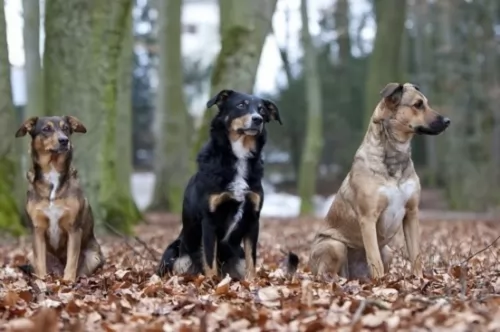 They need quite a lot of exercise, and even though they can adopt to life in the countryside or the city, they will require regular walks, ball- and rope games to prevent them becoming bored, frustrated and destructive.
They need quite a lot of exercise, and even though they can adopt to life in the countryside or the city, they will require regular walks, ball- and rope games to prevent them becoming bored, frustrated and destructive.
The Austrian Short-haired Pinscher sheds quite a bit so he will need to be brushed at least twice a week to remove the loose hairs.
As a medium sized, energetic dog, you want to ensure you maintain your dogs energetic nature by providing him with excellent food.
Choose your commercially manufactured food carefully as some of them are of a poor quality and can actually be detrimental to your dog’s health. Choose a high quality kibble that has quality ingredients.
Home-made food such as boiled chicken, brown rice or pasta and vegetables such as carrots, spinach and sweet potatoes all chopped up and added to his kibble occasionally will do wonders for this dog. He will thrive on also getting in some raw meat from time to time.
Ensure a constant supply of fresh, cool water.